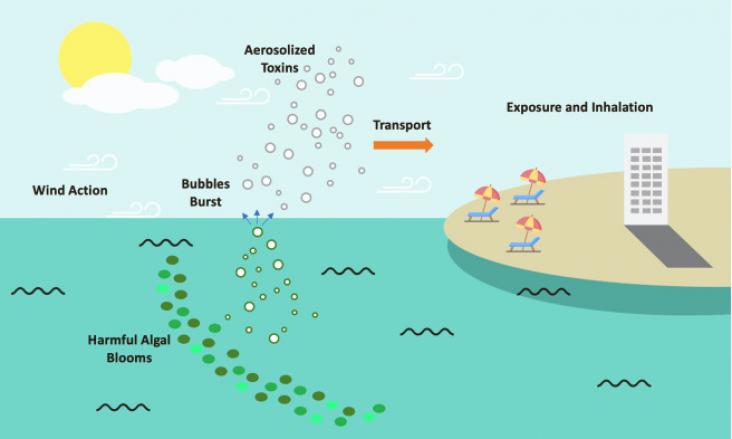Research on mitochondrial homeostasis is promising for the treatment of early AD.
This Article supports SDGs 3 and 13 by identifying gaps in air pollution monitoring and regulation and by proposing potential mitigation policies.

This Article supports SDGs 3 and 13 by identifying knowledge gaps in the relationship between harmul algal bloom aerosols and human health.
This article advances SDG # 3, 13, and 15 by demonstrating a clear increase in heat-related illness incidence that parallels the temperature elevations from climate change.
This article advances SDG # 3, 8, 10, 13 and 16. The study from authors in Ghana detail the effects of climate change on workers’ health and productivity, especially those in lower income jobs and without policy or regulatory protections. It demonstrates that climate change affects both health and ability to work, with potentially serious humanitarian and economic consequences.
Nutrition paves the way to environmental toxicants and influences fetal development during pregnancy
Best Practice and Research: Clinical Obstetrics and Gynaecology, Volume 89, July 2023
This article highlights the risks of a polluted environment on reproductive health, especially via the food system.
Despite increasing attention to the mental health impacts of climate change, an absence of a clear, cross-sectoral agenda for action has held back progress against the dual and interconnected challenges of supporting human and planetary health. This study aims to serve as an essential first step to address this gap.
This paper is particularly relevant to investigations into the spread of organisms that remain close to shore over timescales of days-to-weeks, e.g., the spread of marine non-native species and pathogenetic parasites, but is equally relevant to simulations tracking the dispersal of eDNA or coastal pollutants such as oil and plastics.
This One Earth Research Article shows how residential socioeconomic and racial segregation, in part due to historic redlining and unequal investment in green spaces, has led to disparities in heat exposure in the United States. This is expected to worsen as the climate warms, highlighting the need fro climate mitigation and adaptation (SDG 13), with additional implications for improving climate resilient and equitable infrastructure in cities (SDG 11) and public health interventions to reduce heat exposure (SDG 3).
Background: Evidence suggests that culturally adapted psychological interventions have some benefits in treating diverse ethnic groups.
